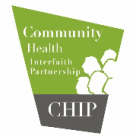Celebrate Children's Mental Health Sunday with a Festival of Art
A day when Sunday School is devoted to celebrating God's gift of creativity
Making art is an affordable, accessible way for all children to learn and feel good about themselves! Artistic expression plays an important role in helping children develop emotionally, physically, and socially. Making art helps them grow, learn, solve problems, cope with stress, develop motor skills, make friends and express their feelings. The process of creating art can help children communicate their thoughts when they may not have the words or the ability to say how what they are feeling.
Making art can:
Thanks to art therapists Tracy Councill, MA, ATR-BC, and Kathryn Horn Conway, MA for helping with this fact sheet.
A day when Sunday School is devoted to celebrating God's gift of creativity
Making art is an affordable, accessible way for all children to learn and feel good about themselves! Artistic expression plays an important role in helping children develop emotionally, physically, and socially. Making art helps them grow, learn, solve problems, cope with stress, develop motor skills, make friends and express their feelings. The process of creating art can help children communicate their thoughts when they may not have the words or the ability to say how what they are feeling.
Making art can:
- Help children succeed in school and in life
- Develop positive attitudes about school, family and self
- Be a fun way to gain new skills and build confidence
- Increase awareness of self and enhance a child’s control and behavior
- Sharpen problem-solving skills
- Be Ready – The materials needed to make art are easy to find and not that expensive – fingers paints are great for young children, watercolors work better for older children, clay and play dough are excellent for beginning sculpting, crayons for drawing, and colored paper and magazine pages for ripping and pasting.
- Be Messy – Know (and be comfortable with) the fact that making art can get messy. Have kids wear clothes that they can get paint and glue on. Be sure to have them create art in spaces that are easy to clean up in case of spills and splashes of paint.
- Be Supportive – Let children decide what they want to use in making art. It’s important to allow them to choose what to make, what art materials to use, and whether to keep their art or throw it away. This gives them the chance to make choices and have some control over their environment.
- Be a Good Listener – A piece of art is a piece of communication, so when children share their art, adults need to respond in ways that show they are listening. A good place to start is by saying something as simple as “tell me about your picture.” Sometimes it’s best to just say nothing and wait to see what a child will tell you. Listen to the stories they tell about their art.
- Be Encouraging – It’s important to encourage a child’s creativity. Remember to appreciate their work for the creative process and the effort involved. It’s the process that is important, not whether the end product is a masterpiece.
Thanks to art therapists Tracy Councill, MA, ATR-BC, and Kathryn Horn Conway, MA for helping with this fact sheet.

